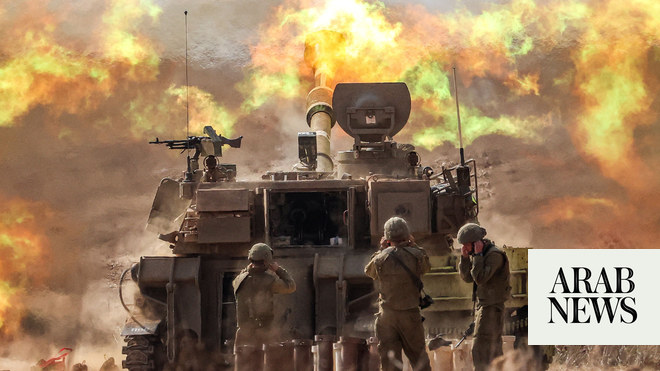DUBAI: Iranians will choose mainly from hard-line candidates in early presidential elections, which will be held on Friday after the death of Ebrahim Raisi in a helicopter crash.
Only six candidates out of more than 80 made it through the Guardian Council, a panel of clerics and lawyers overseen by Supreme Leader Ayatollah Ali Khamenei, who has final say on all matters of state. Two radical candidates withdrew from the race before the election.
The president, who leads the government and has special responsibility for Iran’s struggling economy, is ultimately accountable to the Supreme Leader.
Below are brief sketches of three hardliners and one moderate candidate in the upcoming election:
MOHAMMAD BAQER QALIBAF
A former commander of Iran’s Revolutionary Guard and an ally of Khamenei, Khalibaf is now the speaker of a hard-line parliament. He has previously run unsuccessfully for president twice and was forced to withdraw from a third bid in 2017 to prevent a divided, hard-line vote in Raisi’s initial failed presidential bid.
In 2005, Qalibaf resigned from the Guard to run for president. After an unsuccessful campaign, he took over as mayor of Tehran with the Supreme Leader’s approval, a position he held for 12 years.
In 2009, Qalibaf admitted that, as mayor of Tehran, he helped quell months of bloody unrest that rocked the establishment after a presidential vote that opposition candidates said was rigged to ensure the re-election of hardline President Mahmoud Ahmadinejad.
He is known to civil rights activists as someone who, as head of the national police, crushed protests by personally beating demonstrators in 1999 and also played an active role in quelling riots in 2003. Qalibaf did not respond to a request for comment on the allegations.
SAEED JALILI
Jalili is a hardline diplomat who lost his right leg in the 1980s while fighting for the Guard in the Iran-Iraq war. A political science major, Jalili has said he is a devout follower of Iran’s “velayat-e faqih,” or rule of supreme jurisprudence, a system of Islamic government that underpins Khamenei’s position.
Appointed by Khamenei, Jalili served as secretary of the Supreme National Security Council for five years from 2007, which automatically made him the chief nuclear negotiator. Jalili also served for four years in Khamenei’s office and was an unsuccessful candidate in the 2013 presidential election.
Former deputy foreign minister Jalili was appointed by Khamenei in 2013 as a member of the Emergency Council – a body mediating disputes between the parliament and the Guardian Council.
MASOUD PEZESHKIAN
An Iranian lawmaker of Azeri origin, Pezeshkian is the only moderate candidate approved by the Guardian Council and supported by the pro-reform camp. Its prospects depend on attracting millions of disappointed voters who stayed home in the 2020 elections.
A doctor by profession, Pezeshkian served as health minister under reformist President Mohammad Khatami from 2001 to 2005 and has been a member of parliament since 2008.
Pezeshkian openly criticizes the Islamic Republic for its lack of transparency regarding the death in custody of Mahsa Amini, a young Iranian Kurdish woman, in 2022, which sparked months of unrest.
Pezeshkian was disqualified from running in the 2021 presidential election.
MOSTAFA POURMOHAMMADI
Pourmohammadi, the only cleric running in the race, served as interior minister during former President Mahmoud Ahmadinejad’s first term from 2005 to 2008.
He was deputy intelligence minister from 1990 to 1999, and human rights groups accused him of involvement in the 1998 killings of several prominent dissident intellectuals in Iran. He did not comment on the accusations, but a 1998 Ministry of Intelligence statement said: “A small number of irresponsible, perverted and dishonest Ministry agents, who were most likely puppets of others, carried out these assassinations in the interests of foreigners.”
Human Rights Watch in a 2005 report documented Pourmohammadi’s alleged role in the execution of hundreds of political prisoners in the Iranian capital in 1988.
Pourmohammadi has never publicly addressed allegations about his role in the 1988 so-called “death committee” of religious judges, prosecutors and intelligence ministry officials who oversaw executions.

